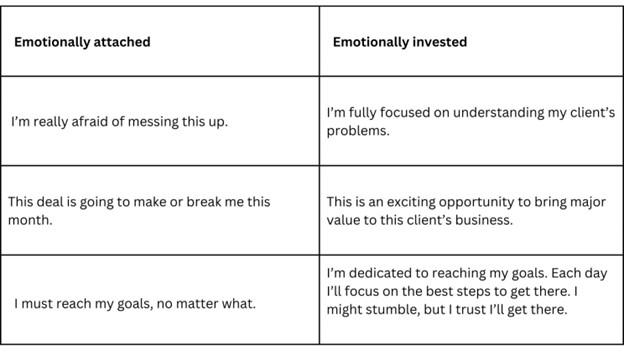When I was 24 years old, I moved from Boston to Rome with 4 suitcases, no job lined up, a meager amount in savings, and one friend of a friend to call when I got there. I had recently completed a Master’s Degree in Italian Translation, and I was determined to create a new life for myself in Rome while putting my degree to work. There really was no plan for how to do that, but I was emotionally invested in the vision I had for this new life.
I ended up living in Rome for four years. In that time, I translated screenplays and subtitles for Italian films, made new friends, and had a wonderful Italian boyfriend (you saw that one coming right?!) I sipped wine while gazing at the Pantheon, admired Bernini’s sculptures up-close, and enjoyed weekend jaunts in Tuscany and Umbria.
My emotional investment allowed me to stay the course even on days where I was lonely and doubted my crazy decision to move halfway across the world. It enabled me to keep searching for job opportunities even when I was defeated by another rejection or dead-end lead. I was all-in on moving toward the outcome I desired.
But if I had been emotionally attached to having things go a specific way or along a specific timeline, I would have been crippled by those limitations. I wouldn’t have been able to see the big picture and the multiple ways I could get there. Most importantly, I would have been driven by the fear of failure more than the joy of the outcome.
Attachment is rigid and inflexible. It’s driven by fear and scarcity.
Investment is a wholesale dedication to a positive outcome. It’s collaborative with others.
How to win in sales with this distinction:
I’ve noticed that if I’m emotionally attached to making the sale, I risk:
- Being driven by the fear of loss or failure
- Being more focused on my own results than on the best outcome for my client
- Missing key pieces of information in discovery because I have my blinders on
- Wanting the sale more than the client wants to change
By contrast, when I’m emotionally invested, I can:
- Be dedicated to reaching my goals, but flexible on how I get there
- Focus on what’s best for each specific client
- Desire the best for my client while ensuring that they’re equally invested (remember, investment is collaborative)
How can you tell the difference?
The distinction between attachment and investment can be subtle – but the difference is massive. To know whether you’re attached or invested, examine your own thoughts and emotions about your sales.
If you notice attachment (rigidity), try shifting from attachment to investment like these examples:

Why you’ll never get it “perfect”
Emotions are messy, and we’re human. It’s impossible to achieve a “perfect score” of being invested but not attached. There are some days where I get it right, and others where the fear of failure is a real spoke in my wheels.
But awareness is key. Practicing high emotional intelligence and awareness will keep you real with yourself, and allow you to course-correct as you go.
PS: that’s me in Rome in the picture above – when I returned for a visit last year 🙂
Now: I’m curious to hear your perspective on this. Do you agree with the distinction between investment and attachment? Do you see things differently? Share your view in the comments below.
For more on emotional intelligence in sales, check out Robin’s Book – Heart-Powered Sales





0 Comments